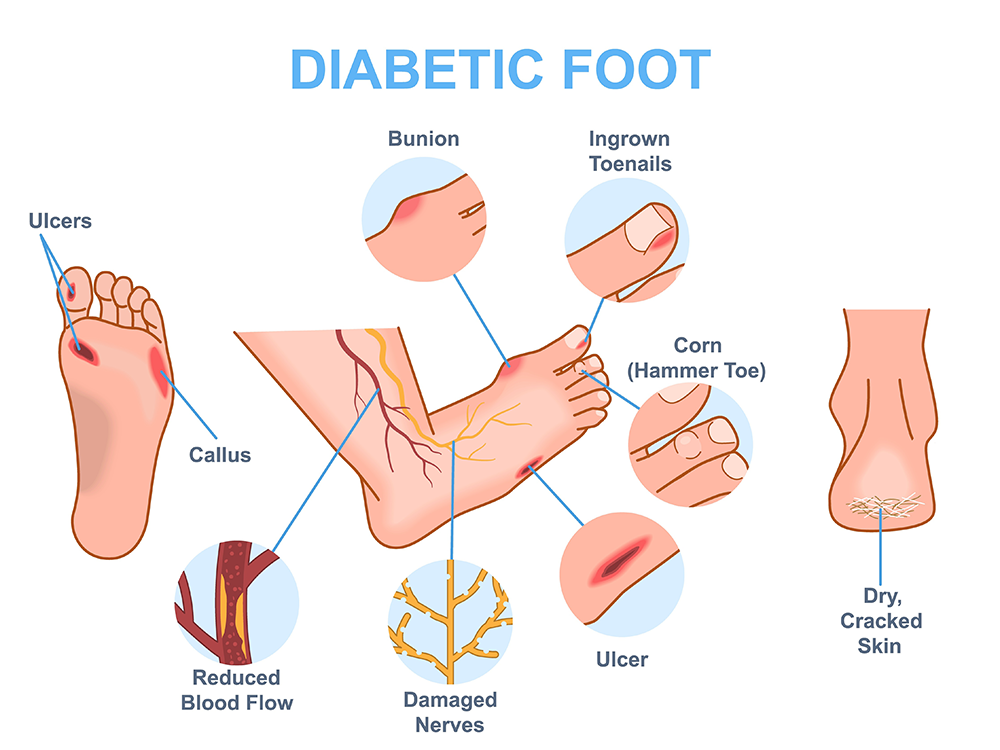Diabetes and Your Feet
Book your appointment with us
Diabetes is a chronic condition characterised by elevated levels of glucose in the blood which can lead to a variety of health issues, including significant foot complications.
These complications are not restricted to patients with type 1 diabetes. Those with type 2 diabetes are also at risk.
Over time, high blood sugar levels have an impact on circulation. The linings of capillaries thicken, red blood cells carrying oxygen become less pliant making it harder for them to pass through the capillaries and arteries narrow (Peripheral arterial disease), all of which make it harder to get sufficient oxygen and nutrients to your feet.
Prolonged high blood sugar levels can also cause nerve damage (Neuropathy) that reduces sensation in your feet. Neuropathy can change the way muscles respond which results in your foot changing shape; this can affect your balance and gait. Neuropathy decreases the activity of sweat glands in the skin making the skin dry and more at risk of cracks and fissures. More importantly, Neuropathy makes it less likely that you become aware of injuries or infections. Nerve damage interferes with the immune response. A reduced immune response coupled with decreased nutrients & oxygen reaching your wound or infection can significantly delay healing. This means that a minor cut or abrasion in a diabetic patient can have serious consequences such as ulcers.

